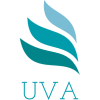Business & Tourism Visas
Business & Tourism Visas

The Visitor Visa is a nonimmigrant visa for persons desiring to enter the U.S. temporarily for business (B1) or for tourism, pleasure or medical treatment (B2).
Applicants for visitor visas should generally apply at the U.S. Consulate with jurisdiction over their place of permanent residence. No special permission needs to be obtained from the U.S. Citizenship & Immigration Service (USCIS) before a visa is issued by the Consulate.
The period of admission into the U.S. is normally for a period of up to six months, as shown on the Form I-94 issued at the port-of-entry. Once entry with a visitor visa is made into the U.S., an application to extend visitor visa status may be filed with the USCIS requesting extension for up to six additional months.
Nationals of certain countries, most of which are located in Western Europe, may enter the U.S. without a visa under the visa waiver program. If entry to the U.S. is made under the visa waiver program, it is not possible to extend visitor visa status in the U.S. with the USCIS.
The duration for which the person can stay depends upon the expiration date of the I-94, and not on the expiration date of the visa stamp. The date on the visa stamp is irrelevant. For example, an individual who enters the U.S. on a 10 year multiple entry visitor visa is not entitled to remain in the U.S. for 10 years, but only for the amount of time specified on the I-94. As long as the visa is unexpired, a person can apply at the port of entry for entering the U.S. A single entry visa allows the person to apply to enter the U.S. once. A multiple entry visa allows the person to apply to enter the U.S. multiple times while the visa is unexpired.
Eligibility/Requirements
In order to qualify for a Visitor visa, an applicant must prove to the
consulate officer that she/he is not an intending immigrant and
must fulfill the following requirements:
1. You must be entering the U.S. temporarily.
2. You must have a permanent residence in your home country that you have no intention of abandoning.
3. You must have strong social and economic ties to your foreign residence and do not intend to abandon it.
4. You must not be coming to the U.S. to provide services or engage in business activities that are primarily for the benefit of a U.S. employer.
5. You may not be paid a salary or other remuneration from a U.S. source. However, reimbursement for per diem and travel expenses is permitted.
6. You have sufficient funds to cover all expenses.
This site is not affiliated with the United States Government in any way, we are not a law firm, and are not a substitute for an attorney or law firm. US visas can be obtained through traditional Government channels without our assistance and without paying our service fees by visiting the state department website.


